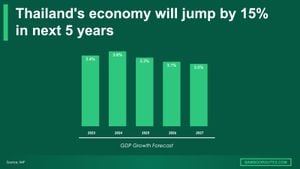The French government is set to reopen dialogues concerning pension reforms, ignited by the meeting of social partners on February 27. This development follows significant unrest sparked by the 2023 reform, which raised the legal retirement age from 62 to 64 years.
François Bayrou, announcing the renewed dialogue, emphasizes the government's commitment to finding middle ground as pressures mount from both financial projections and public discontent. The Court of Accounts has forecasted alarming deficits within the pension system, estimating it could reach €15 billion by 2035 and swell to €30 billion by 2045.
“It’s necessary to work longer,” asserts Astrid Panosyan-Bouvet, the Minister of Labor, reiterate the government's stance as financial specialists call for strict measures to maintain fiscal stability. Laurent Saint-Martin, the Minister Delegate for Foreign Trade, adds, “It’s a very serious mistake” to even contemplate rolling back the changes to the retirement age, underscoring the administration's focus on keeping the financial frameworks intact.
Despite these assertions, advocates for reverting back to the former retirement age of 62 are gaining traction among unions, reflecting widespread public sentiment. Patrick Martin, President of Medef, firmly opposes alterations to the legislation and suggests even extending the age limit beyond 64, declaring, “It might even be necessary to push it even earlier.”
This rigid stance from Martin signals increasing tensions as unions reject the notion. They demand backtracking on the age hike or implementing alternative reform strategies, including higher contribution rates or more accommodating arrangements for long and arduous careers.
Negotiations opening later this month are marked by their complexity; both sides appear staunchly rooted in their positions, creating what may become protracted discussions. The government aims to alleviate tension between fiscal requirements and what constitutes fair treatment of workers. A notable proposal on the table is bringing capital savings options, historically taboo, which has drawn mixed responses from the business sector and unions alike.
The Confederation of Small and Medium Enterprises (CPME) expresses receptiveness to bringing capital options to the discussion, considering it could supplement pensions without overstressing public funds. Nevertheless, skepticism remains, particularly from the CGT union, which adamantly rejects any modifications to the existing model.
Prime Minister's Office has set a deadline until early June for these social partners to arrive at some consensus, cautioning the necessity for resolution amid deepening divides. With tensions continuously stirring, the pension reform discussion remains emblematic of broader economic and societal fractures affecting France today.
The impending negotiations promise to reveal the extent of these fractures as France grapples with balancing economic realities and public welfare. Can the French government navigate this tumultuous terrain without inciting more upheaval? Only time will tell.



